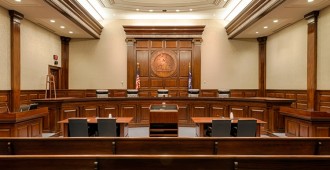September 14, 2017
Federal Circuit Reverses PTAB for Refusing to Allow Supplementation of Record to Add Later Inconsistent Deposition Testimony from an Expert
The Board exercises substantial power over the scope of the record in IPRs, but the Federal Circuit’s decision in Ultratec v. CaptionCall illustrates a limit on that power. The case involved a collection of consolidated IPR proceedings concerning patents for systems that assist deaf or hard-of-hearing users to make phone calls. The patents were also the subject of district court litigation between the parties. In a procedural oddity, the district court trial was completed before the IPR. The jury found infringement and awarded $44.1 million in damages. Execution of that judgment was stayed pending the IPR, and five months after the jury’s decision, the PTAB found all challenged claims unpatentable.
The patentee used the same expert in both the PTAB proceedings and the district court litigation. After the trial, the challenger felt the expert’s district court trial testimony was inconsistent with his testimony in the IPR and sought to supplement the record. Following its procedure, the Board required a conference call to discuss whether a motion to supplement would be authorized. As also required by the Board’s rules, that discussion did not include the substance of the testimony that challenger sought to add to the record. The Board denied the challenger’s request for authorization to file the motion, effectively excluding the trial testimony from the IPR. The Board did not issue a written order on this point. Then, in the final written decision, the Board found patentee’s expert credible, including on points where challenger argued that the expert’s trial testimony contradicted his testimony in the IPR. The Board then denied a motion for reconsideration, addressing the supplemental evidence in a cursory manner. The net effect of the procedure followed by the Board was to exclude the expert’s trial testimony from the record on appeal.
The Federal Circuit vacated and remanded, finding that the Board abused its discretion by refusing to entertain a motion to supplement. First, the court found the challenger satisfied § 42.123(b)’s requirements because the evidence could not have been obtained earlier, and because the Board offered no reasoned basis why allowing this evidence into the record would not be in the interests of justice. In sum, per the Federal Circuit, a “reasonable adjudicator would have wanted to review this evidence.”
The Federal Circuit added additional criticisms of the Board’s procedures. First, the Court found that the Board lacked the information necessary to make a reasoned decision, because it would not even look at the evidence sought to be added. Second, the Court noted the Board’s procedures allowed it to make “significant evidentiary decisions without providing an explanation or a reasoned basis for its decisions,” in contravention of Supreme Court law. Third, the Court explained the procedures impeded meaningful appellate review, because those procedures set up a situation where evidence that was excluded could not be a part of the appellate record. The Court also reminded the Board of governing statutory law, noting “To the extent the Board views the two-step process it created to file motions as insulating it from its APA obligations, this is incorrect.”
Although the Courts have largely given the PTAB free reign in creating IPR procedures, this decision, combined with the panel-stacking controversy precipitated by the Federal Circuit’s recent Nidec opinion, may a growing concern at the Federal Circuit with the Board’s use of this freedom.


































